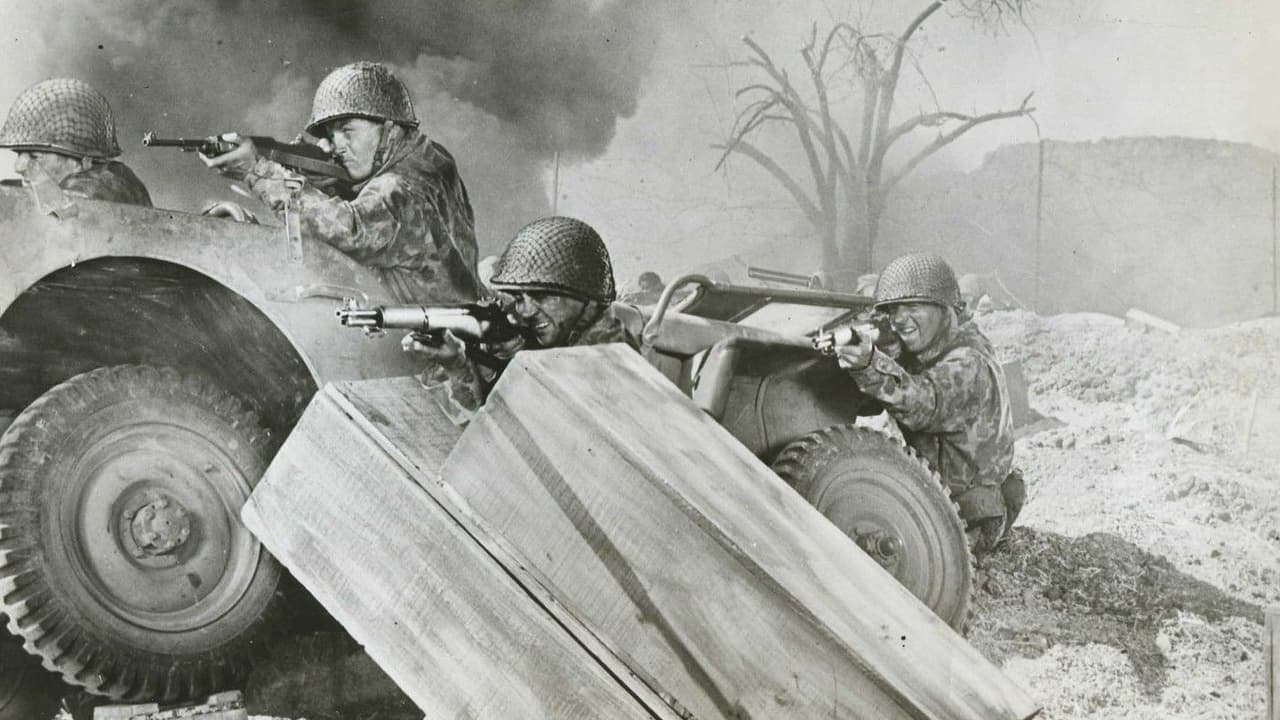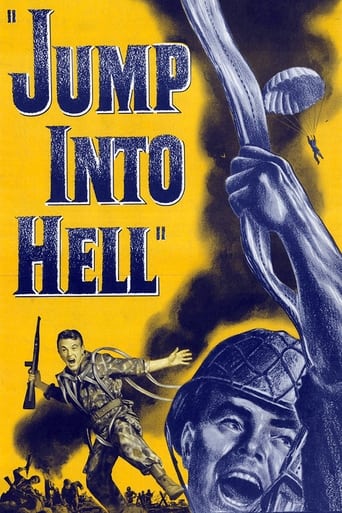Scanialara
You won't be disappointed!
Nonureva
Really Surprised!
Karlee
The joyful confection is coated in a sparkly gloss, bright enough to gleam from the darkest, most cynical corners.
arthur_tafero
This decent war film starts out with a tribute to a fight against slavery. Unwittingly, the tribute actually described the struggle of the North Vietnamese against all foreign invaders and colonialism by the West. It was meant to imply the French were against slavery. Tell that to the colonials under their rule in various African and Asian countries, and they would laugh in your face. It has taken the world several decades to learn that colonial powers were the real slaveowners. And some have still not learned. The battle sequences are good, but, once again, one-sided. There is no character development of anyone except French people. The other soldiers are just mechanical men because they are communists. As if colonialists were morally superior to communists. I wonder why it did not occur to these people why the communists fought so bravely; as bravely as the French.
kapelusznik18
***SPOILERS*** Movie loaded with great battle scenes as well as cold war propaganda about the epic battle and siege of DienBienPhu in Northern Vietnam and the men of the French Foreign Legion and free Vietnamese nation who fought and died there. It's the spring of 1954 and the Communist Viet Mihn-forerunners of the Viet Cong of the 1960's and 70's- are making a last major assault of the last French resistance point in Indochina the jungle fortress of Dienbienfhu that's being held by a desperate force of some 12,000 French legionnaires and Free Veitnemese troops. Lead by Viet Minh commander General Ngeyn Von Giap the Viet Minh-named after Commie leader Ho Chi Mnih- have so completely surrounded the French fortress that the only way to supply it is by air.It's French General De Castries, Arnold Moss, who plans to hold off the wave after wave of attacks until the last man as- well as bullet spent- is killed and exhausted knowing the hopeless situation, in being out numbered by the commie Viet Minh as much as 10 to 1, that only an a miracle can save him and his men. And that is all but gone when an air drop is ambushed by the Viet Minh who end up massacring most of the men dropped by air into Dienbienphu. All that's now left is for a last as well as suicidal assault by the Viet Minh to put a final end to the French control of Indochinma as the now 56 day siege of the Dienbienphu strong-point is about to come to an end.***SPOILERS*** Great war footage, real and acted, as well as 1950's cold war propaganda in how the French were fighting for only the freedom and survival of the free Vietnamese people not their own imperialism makes this movie one of a kind in for-telling what was soon to come when the US was to take it's place in Vietnam and sadly suffer-some 20 years later- the same fate. The end came on May 7, 1954 when the Viet Minh broke through the last French defenses and overran the fortress. It was no easy victory for victorious Viet Minh losing 7,000 to 10,000 men in the battle compared to the loss of some 3,000 French legionaries and their Vietnamese allies. But it was to mark the final collapses of the French imperialist empire that lasted for almost 150 years with French controlled Algeria soon to explode and throw out its French occupiers before the year-1954-is over.
Panamint
One of the Vietnamese characters, a troop on an airplane, pretty much sums up the overall issue in Indochina: they didn't want outsider Russians and Chinese, nor did they want the outsider French unless the French granted them some autonomy (he used the much-overused phrase "democracy"). Later, the vast majority of them didn't want the outsider Americans, either. After the departure of WWII Japanese occupiers, French Colonialists, anti-communist Americans, Russians and Chinese, and after fighting yet another border war with China after the Americans left, Vietnam finally became a sovereign nation. Whew, what a long slog they had.Many heroic and brave French military and Foreign Legion troops were sacrificed in Indochina and the film properly credits their bravery, with some well done military depictions.The Americans ended up seeming rather two-faced to everyone, having at one time sided with the Vietnamese nationalists during and after WWII only to drop them, later supporting the French because they were anti- communist, only to just simply abandon the French along with any and all representations expressly made or implied to them. I mention this mainly because some one-sided American cold war jingoism is used to an almost laughable extent throughout the movie.Diplomacy is given lip service but actually played an important part in all of the Indochina conflicts. A Geneva conference is mentioned, and in fact a later Geneva Agreement reached by U.S. Ambassador Averill Harriman in 1961/62 effectively ham-stringed subsequent U.S. actions in the region. Constant conferences went on for decades regarding the Indochina situation.The lessons of the conflict depicted in this film should not be forgotten but I believe it is a travesty that the word "Colonialism" is not emphasized in the film or in most reviews and discussions of it. I prefer to remember this film as a jump into Colonialism, which is was.
alanjohnson-65117
Most of the reviewers here have been pretty spot on with their observations. It's worth noting that there were some exceptional stories of valour and gallantry at Dien Bien Phu. A good example is the Walker light tanks that were literally dropped in crates and built on-site by the Motorcar platoon at the fortress. The tanks are still there today. The action was more than a little 'faked' but not at all out of character for the 1950's. (See the Gene Barry-Angie Dickinson movie, 'China Gate' for a very comparable French Indochina picture.) It would have been far more compelling as a docudrama chronicling the events of the siege from the beginning until the tragic (at least for the Legionnaires) end. This is a movie that would be well worth a remake, however unlikely that is. All in all there are many worse war movies. The appearance of a young and beautiful Patricia Blair in her pre-Daniel Boone days is a plus. It's disappointing that she did not have a more expansive career.

